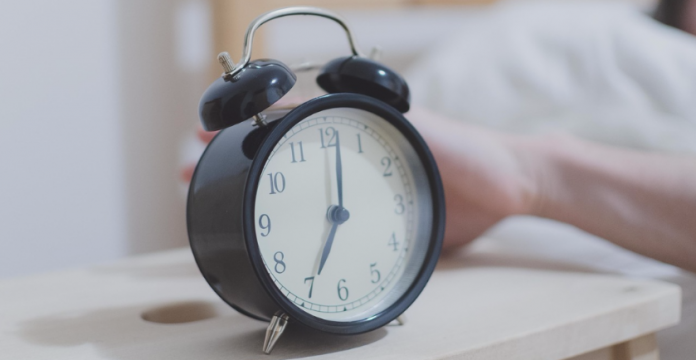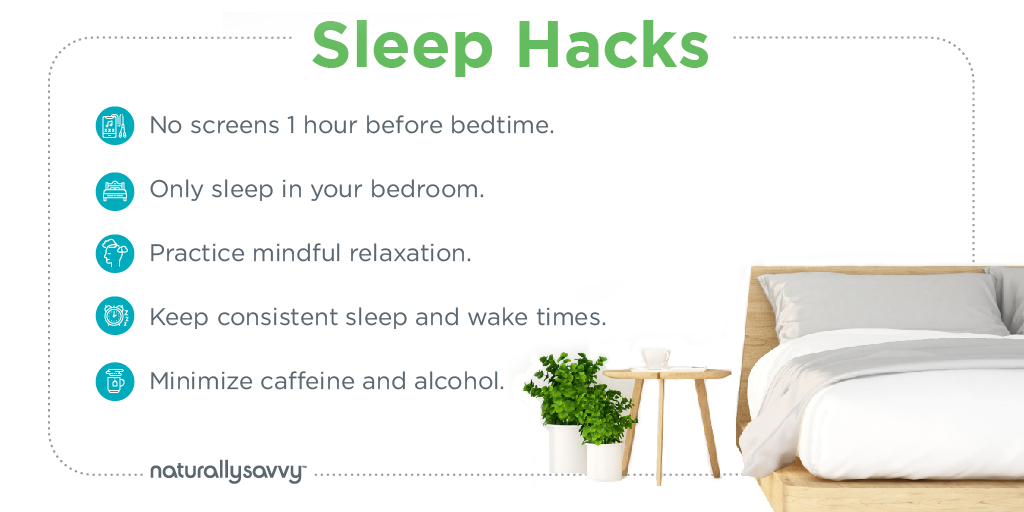
If, like many Americans, you struggle to fall asleep at night, you know how much a good night's rest can impact the rest of your day. While one of the main things is making sure we set enough time aside to get the recommended 7 hours a night, there are steps we take right now to sleep better tonight.
1. Say no to screen time. Turn off your cell phone (consider going old school with a non-digital alarm clock instead of your phone), and avoid TV and computer screens two to three hours before bed. Blue light can interfere with melatonin production, which controls circadian rhythms, and there's also some early evidence that lower melatonin levels are linked to cancer.
2. Designate your bedroom for two activities only. Don't watch TV or browse Facebook (see above) in bed, and keep work and leisure time out of the bedroom. Commit to using that room only for sleeping and sex. Get rid of the television if you have one, remove other distractions, and don't let your pets bunk with you at night (sorry Fluffy).
3. Mindful relaxation. Take the time to ease into bedtime and prep your brain and body for rest. An Epsom salt bath with lavender essential oil, a calming cup of organic chamomile tea, or even just 10 minutes of meditation can make falling asleep easier. [Editor's Note: We recommend choosing a high-quality tea, like those from our partner Bigelow.]

4. Work with your body. It can be tempting to try to catch up on sleep through naps or by sleeping in on the weekend, but you're making things harder on yourself by confusing your body. Try to go to bed and wake up at roughly the same time every day. Research says consistent sleep and wake times can also lower the risk of heart disease.
5. Time your caffeine. There's nothing wrong with a cup of coffee to get your day started, but caffeine throughout the day can impact your ability to fall asleep later. Make sure to avoid caffeine-laden food and drinks (tea, soda, chocolate) after 2 pm.
6. Skip the nightcap. Alcohol may make you feel drowsy, but it results in a type of non-restorative sleep where the brain is awake but resting.
7. Try supplements. There are lots of supplements that can help with sleep: magnesium, melatonin, valerian root, passion flower, and theanine all support healthy sleep. Speak to your natural health professional to find out which supplement is right for you.
Try Morphus Sleepus, a non-habit-forming sleep supplement. This supplement addresses sleep issues during perimenopause and menopause by reducing cortisol levels, relaxing the body and mind, and promoting optimal sleep.
Read about how magnesium can make you healthier
It's normal to have a rough night now and then, but if sleeplessness is a persistent problem it's important to consult a doctor.











